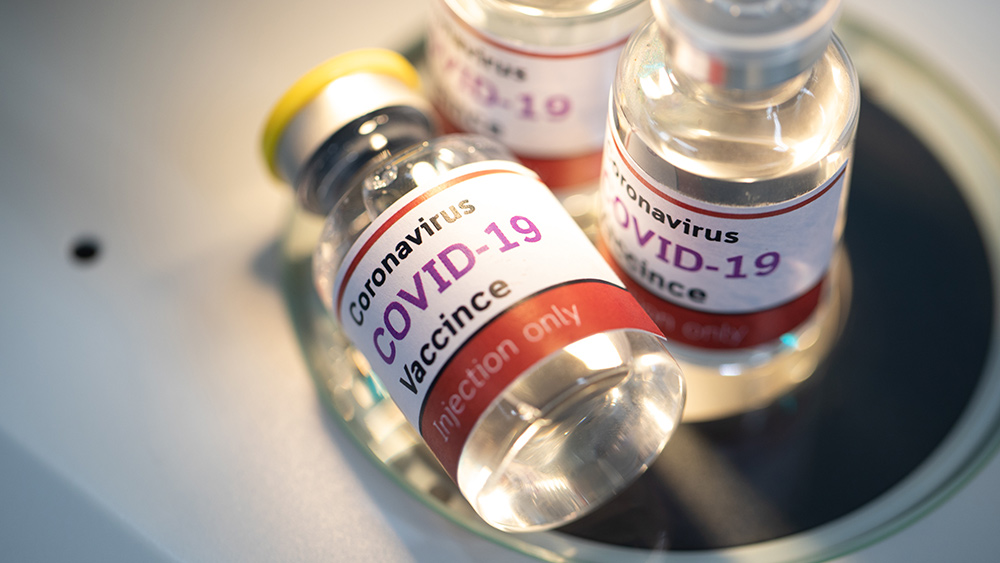Should babies be prescribed fluoride? A growing trend, divided science and the FDA’s pushback
08/06/2025 / By Olivia Cook

- The FDA is moving to remove ingestible fluoride prescription drugs for children amid safety concerns and a lack of formal approval.
- Ingested fluoride may disrupt gut health and studies link it to lower IQ, thyroid issues and possible neurotoxic effects, especially in developing children.
- Fluoride’s cavity-fighting power is primarily topical – brushing works, swallowing doesn’t add much benefit.
- Water fluoridation delivers an uncontrolled dose to everyone, including vulnerable populations, like infants, pregnant women and high-water consumers.
- Global experts recommend safer alternatives, including filtered water, fluoride toothpaste, topical treatments and sugar reduction.
When Florida and Utah became the first U.S. states to ban water fluoridation earlier this year, many parents believed they were stepping away from a controversial practice. But almost immediately, another trend emerged: Pediatric fluoride prescriptions (tablets, drops) surged.
Doctors and dentists, hoping to protect young children from cavities, began recommending fluoride tablets and drops for babies – some as young as six months old. These tablets or drops, unlike toothpaste or rinses, are swallowed and metabolized, not just brushed on teeth. And that detail has become the focus of serious concern.
Now, the Food and Drug Administration (FDA) is stepping in – and it’s not just the pills or drops under scrutiny. It’s fluoride itself.
FDA cracks down on ingestible fluoride for kids
In May, the FDA announced it was initiating action to remove ingestible fluoride prescription drug products for children from the market. The surprise? These products were never formally approved in the first place.
More troubling are the emerging health risks tied to systemic fluoride use – meaning fluoride that is swallowed, absorbed and circulated throughout the body, rather than applied directly to the teeth.
According to the FDA, ingested fluoride may disrupt the developing gut microbiome in children. While effective at killing bacteria on the surface of teeth, fluoride may also harm beneficial intestinal bacteria when absorbed systemically.
In addition to gut impacts, the FDA flagged concerns over thyroid disorders, unexplained weight gain and potential cognitive harms. The agency has set a deadline of Oct. 31 to conclude its safety review and public comment period.
One of the tipping points in the fluoride debate is a major meta-analysis published in JAMA Pediatrics earlier this year. After reviewing 74 studies from 10 countries, researchers found a consistent pattern. Children exposed to higher fluoride levels scored lower on IQ tests.
Among the study’s key takeaways:
- Even fluoride levels under the U.S. “safe” limit of 1.5 mg/L were linked to measurable IQ declines.
- A 1 mg/L increase in urinary fluoride corresponded with a 1.63-point IQ drop.
- The link remained consistent across cross-sectional and cohort studies and across both water and urine fluoride levels.
Prenatal exposure also matters. A Canadian study found that mothers who consumed more fluoride during pregnancy were more likely to have children – especially boys – with lower IQ scores by age four.
Why are so many questioning fluoridation itself
Beyond fluoride pills and drops, water fluoridation is now under global scrutiny. While once celebrated for slashing cavity rates, today it is being reexamined in light of modern science – and ethics. Critics point to several foundational concerns.
- Uncontrolled dosing: Once fluoride is added to public water, everyone is exposed, regardless of age, body weight, medical conditions or water consumption habits. A toddler and a construction worker drink vastly different amounts of water – but both get the same fluoride concentration.
- Contamination risks: Fluoridation chemicals are often industrial byproducts. Not all countries or municipalities require certificates of analysis verifying purity. As a result, trace contaminants like arsenic or lead could unintentionally enter the water supply.
- No individualized treatment: Medication – especially for children – is typically tailored. But fluoridation provides a blanket dose to entire populations, without consideration for pre-existing fluoride exposure or sensitivity.
- Scientific gaps: Critics argue that the effectiveness of water fluoridation has never been proven by a randomized controlled trial, the gold standard in medicine. Further, the FDA classifies fluoride used in water as an “unapproved new drug.”
- Other fluoride sources: Today’s families are already exposed to fluoride through pesticide residues, processed foods, toothpaste, tea and even deboned meats. These cumulative exposures make overdosing more likely, especially in children.
- Global consensus is shifting: More than 4,000 medical and dental professionals have signed a petition to end water fluoridation worldwide. Most of Europe doesn’t fluoridate water – and yet they see similar or better cavity rates compared to fluoridated regions in the United States.
Systemic fluoride – when swallowed and absorbed – doesn’t stay nearly confined to your teeth. It travels.
The gut microbiome, particularly fragile in infants, can be disrupted by systemic fluoride, compromising digestion and immune function. As the FDA put it, the same bacteria-killing properties that make fluoride effective on teeth may be harmful when they reach the intestines.
Fluoride can also cross the blood-brain barrier, potentially interfering with developing neurological pathways. That is why research has linked early-life exposure to neurotoxic effects, like reduced IQ and delayed cognitive milestones. (Related: Fluoride, aluminum and the brain: Could everyday chemicals be contributing to autism?)
And in cases of high or chronic intake, fluoride can accumulate in bones, leading to dental fluorosis (mottled pitted teeth) or, in extreme cases, skeletal fluorosis – a painful condition that causes bone thickening, stiffness and joint issues.
What parents and caregivers should know
If you’re wondering whether fluoride tablets, drops or fluorinated water are right for your baby, here’s what health experts advise:
- Skip ingestible fluoride for infants. The FDA has serious concerns and these products may soon be withdrawn. Unless there’s a specific clinical need, they’re not worth the risk.
- Use fluoride toothpaste and rinses – but sparingly and topically. A rice-sized smear is enough for babies. Start brushing as soon as teeth emerge and supervise to prevent swallowing.
- Mind the water source. If your tap water is fluoridated and you’re preparing infant formula, consider using filtered or fluoride-free water to reduce overall exposure.
- Limit sugar and brush consistently. Preventing cavities isn’t just about fluoride. It is about daily oral hygiene and diet. Reducing sugary snacks and drinks is one of the best things you can do for a child’s teeth.
- Ask for topical fluoride at dental visits. Fluoride varnish treatments applied directly to the teeth offer protection without systemic exposure.
Parents deserve clear, nuanced guidance. They deserve medical advice rooted in current science, not outdated protocols. And most of all, they deserve the truth. When it comes to fluoride, how it is used matters – and in babies, that difference could shape long-term health.
The FDA commissioner discusses removing fluoride tablets and drops for kids. Watch this video.
This video is from the Daily Videos channel on Brighteon.com.
More related stories:
Study finds fluoride exposure before birth can affect a child’s brain development and behavior.
Government report links high fluoride levels in drinking water to lower IQ in children.
Sources include:
Submit a correction >>
Tagged Under:
arsenic, cavity prevention, children's health, Dental fluorosis, FDA, fluoride sources, gut health, gut microbiome, hygiene, infant's health, neurotoxic effects, Neurotoxin, oral health, skeletal fluorosis
This article may contain statements that reflect the opinion of the author





















